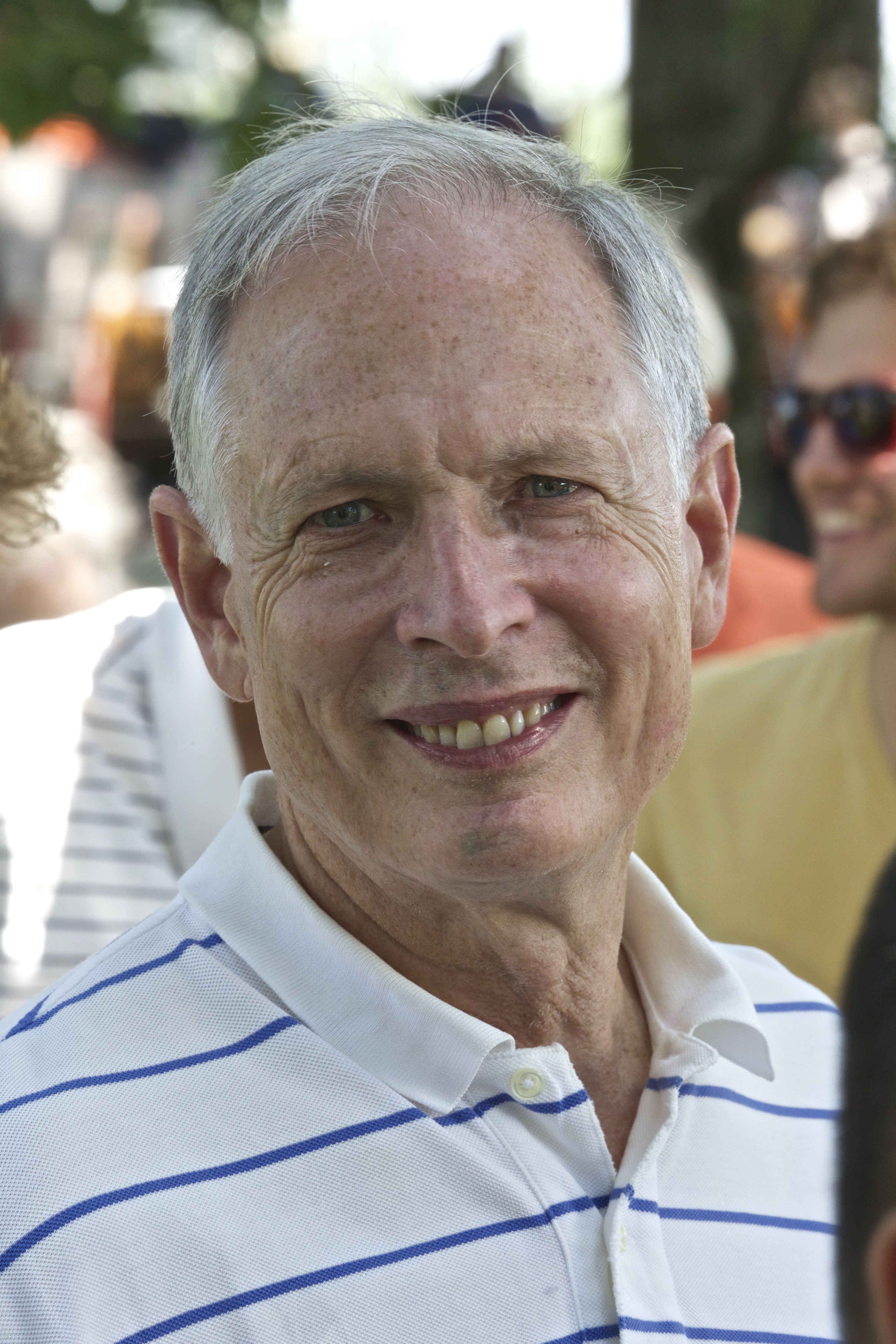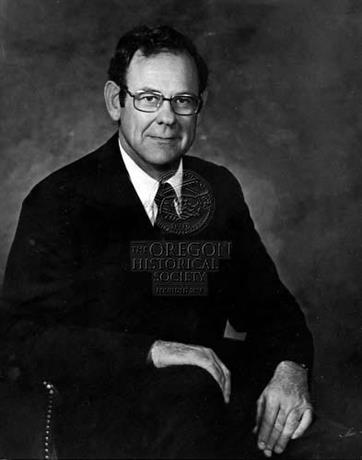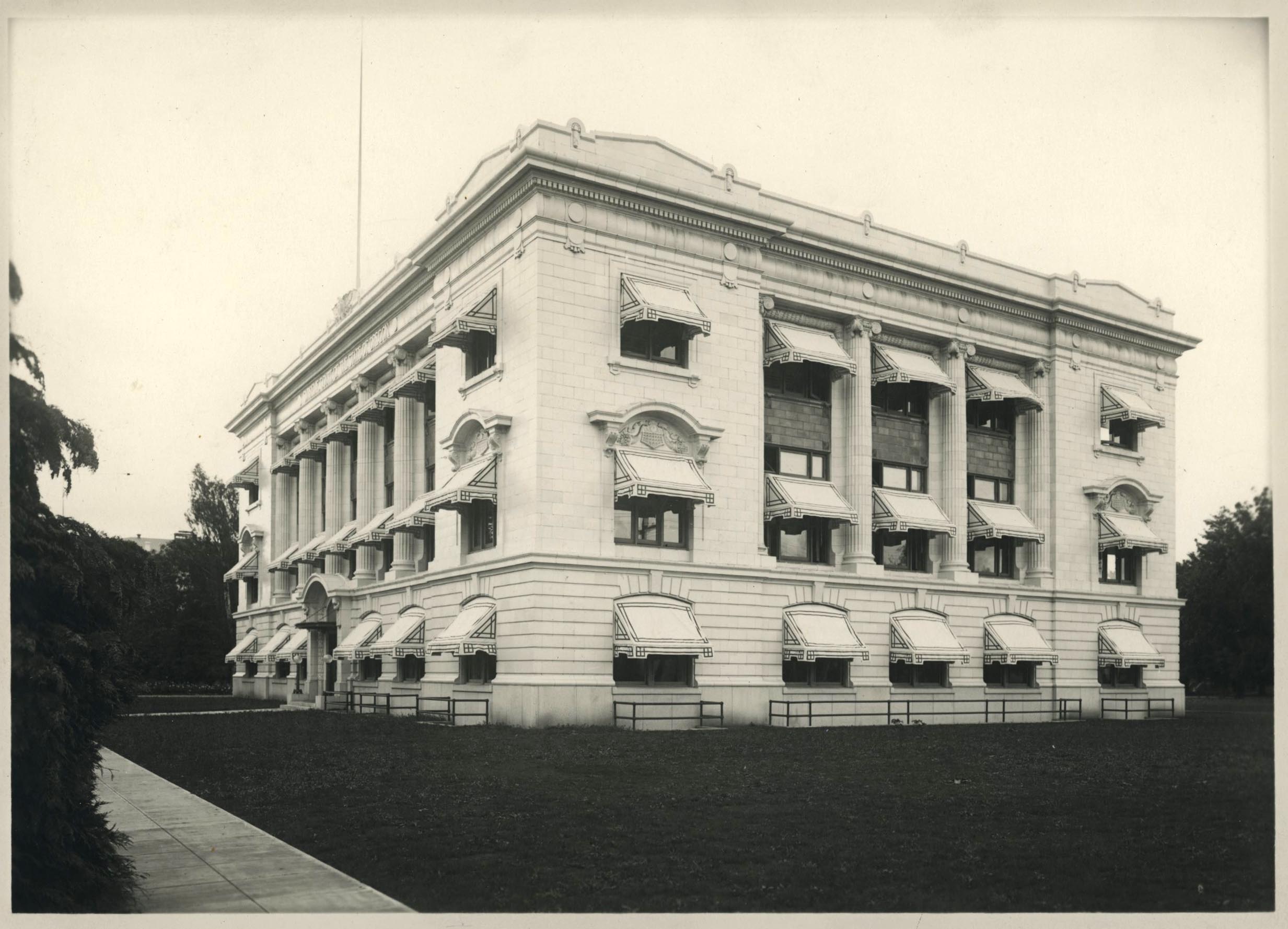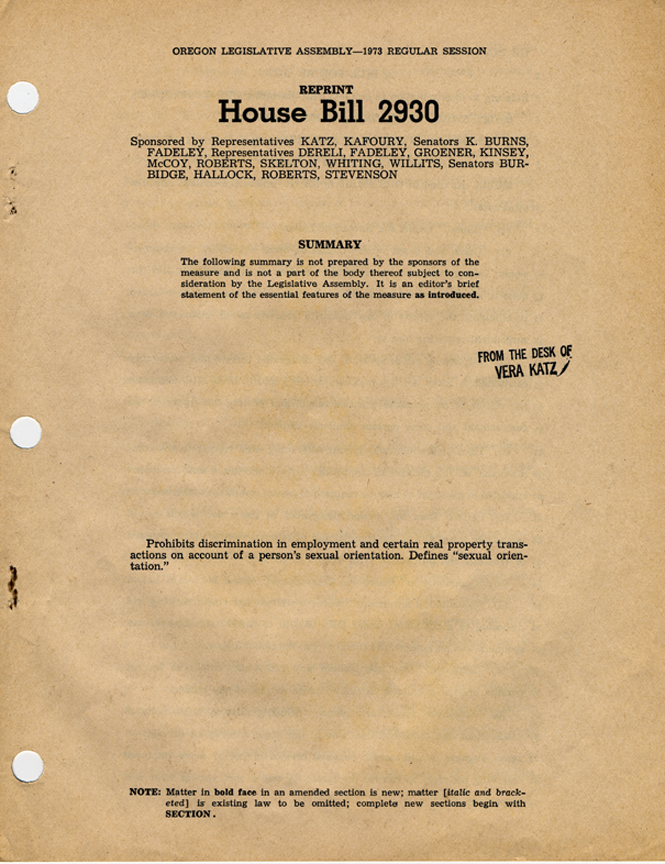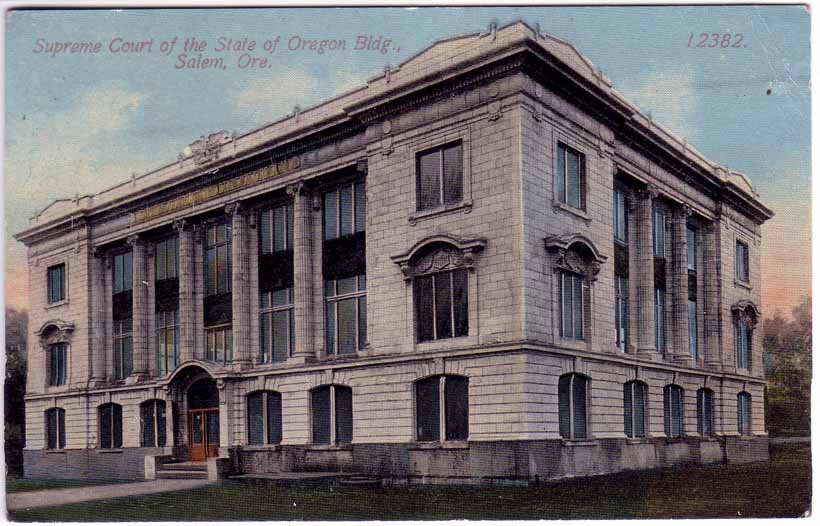Rives Kistler served on the Oregon Supreme Court for fifteen years, from 2003 to 2018. His work on the court was marked by his willingness to undertake meticulous reasoning in legally complex cases, including Klamath Irrigation Dist. v. United States (2010), relating to water rights in the Klamath River Basin; Barrett v. Union Pacific Railroad Co. (2017), recognizing limits to Oregon's exercise of personal jurisdiction over multistate corporations; and Kinkel v. Persson (2018), upholding a lengthy sentence without parole for a juvenile convicted of multiple murders. Oregon Supreme Court Chief Justice Martha Walters described him as "a brilliant legal thinker who cares deeply about the law and the people it affects." Kistler was the first openly gay state supreme court justice in the United States. Since his appointment to the Oregon Supreme Court in 2003, about a dozen openly LGBT justices have served or still serve on state supreme courts in the nation, including three in Oregon.
Daniel Rives Kistler was born in Los Angeles in 1949 and was raised in a small town near Greensboro, North Carolina. After graduating from Williams College in Massachusetts in 1971, he spent over a year traveling and working in Europe. He earned a master’s degree in English in 1978 at the University of North Carolina. Eventually, he decided he needed to get serious about a career and enrolled in the Georgetown University Law Center in Washington, D.C., in 1978. As a third-year law student, he clerked for Judge Harry Edwards of the U.S. Court of Appeals for the District of Columbia Circuit. He graduated summa cum laude in 1981.
Kistler clerked for Judge Charles Clark of the Fifth Circuit Court of Appeals and then for Justice Lewis Powell of the U.S. Supreme Court. In 1983, he took a job with Stoel Rives, a law firm in Portland where he had worked for a summer. Before long, he realized that he preferred representing clients in the appellate courts but that he would not be able to specialize in appellate work at Stoel Rives. In March 1987, he took a job in the Oregon Department of Justice’s Appellate Division, where he represented the State of Oregon in civil and criminal cases in state and federal appellate courts, including some U.S. Supreme Court cases. He helped write the State of Oregon’s amicus brief in Romer v. Evans, a 1996 Supreme Court case that held that Colorado could not amend its state constitution to deny homosexuals the same basic legal protections that heterosexuals received, an opinion consistent with the brief’s reasoning. Kistler also helped write Oregon's briefs in Employment Div. v. Smith, a 1990 Supreme Court case that upheld the state's prohibition of peyote against a claim of religious exemption.
Since early in his career, Kistler was interested in serving as a judge, and in 1999 Governor John Kitzhaber appointed him to the Oregon Court of Appeals. When Kistler ran for election to the Court of Appeals, he easily won in an uncontested race. Governor Ted Kulongoski appointed him to the Oregon Supreme Court in 2003. The next year, he filed to run for election to a full six-year term.
“That was probably the worst timing I could have had,” Kistler later said, “being a gay person having to stand for election to the Supreme Court.” States and cities were beginning to recognize the right of same-sex couples to marry, and Multnomah County began issuing marriage licenses to same-sex couples in March 2004. Within days of the county’s action and four days before the deadline to file as a candidate for the Oregon Supreme Court, Lake Oswego attorney James Leuenberger filed to run against Kistler, stressing in his campaign that having a family was an important qualification for judges. The Christian Coalition in Oregon opposed Kistler’s candidacy on the basis of his sexual orientation, and he later remembered that “there were people opposing me and issuing campaign literature that said things like I was morally unfit to be a judge.” Nevertheless, Kistler won by about 20 percentage points, the first openly gay candidate in the United States to win a statewide contested election. He served on the court until he retired in December 2018.
Kistler married Tim Maguigan, his partner of thirty years, in 2014; they live in Portland. He continues to sit as a senior judge, most frequently on the Oregon Court of Appeals, and occasionally travels to law schools to act as a moot court judge and meet with law students.
-
![]()
Rives Kistler.
Courtesy Oregon State Bar -
![]()
Rives Kistler.
Courtesy U.S. District Court Historical Society
Related Entries
-
![Alfred T. Goodwin (1923–2022)]()
Alfred T. Goodwin (1923–2022)
Alfred Theodore “Ted” Goodwin served as a judge for over sixty years an…
-
![Edwin J. Peterson (1930–2023)]()
Edwin J. Peterson (1930–2023)
Edwin J. Peterson served on the Oregon Supreme Court from 1979 to 1993 …
-
![Gay and lesbian rights movement]()
Gay and lesbian rights movement
Before Stonewall Before New York’s Stonewall Riots in 1969, the histor…
-
![Oregon Supreme Court Building]()
Oregon Supreme Court Building
The Oregon Supreme Court Building, at the corner of State and 12th Stre…
Map This on the Oregon History WayFinder
The Oregon History Wayfinder is an interactive map that identifies significant places, people, and events in Oregon history.
Further Reading
Haider-Markel, Donald P. and Patrick Gauding. “LGBT Judges in the United States.” In Race, Gender, Sexuality, and the Politics of the American Judiciary, edited by S. L. Hernandez and S. A. Navarro, 89-90. Cambridge, U.K. Cambridge Univ. Press, 2019.
Wong, Peter. “Kistler: ‘Leave personal life at home and do your job.’” Portland Tribune, March 7, 2019.
Klarman, Michael J. From the Closet to the Altar: Courts, Backlash, and the Struggle for Same-Sex Marriage. New York City: Oxford Univ. Press, 2013.




